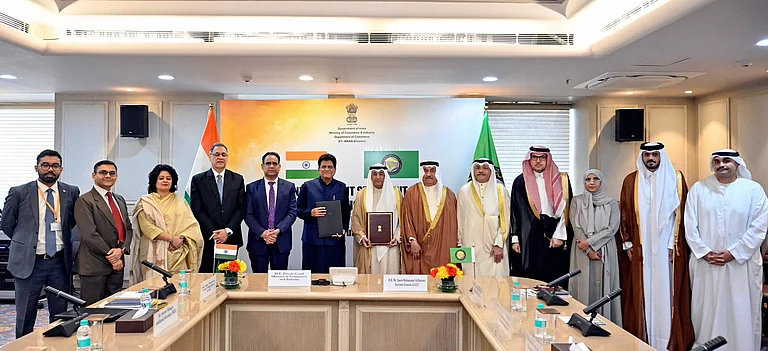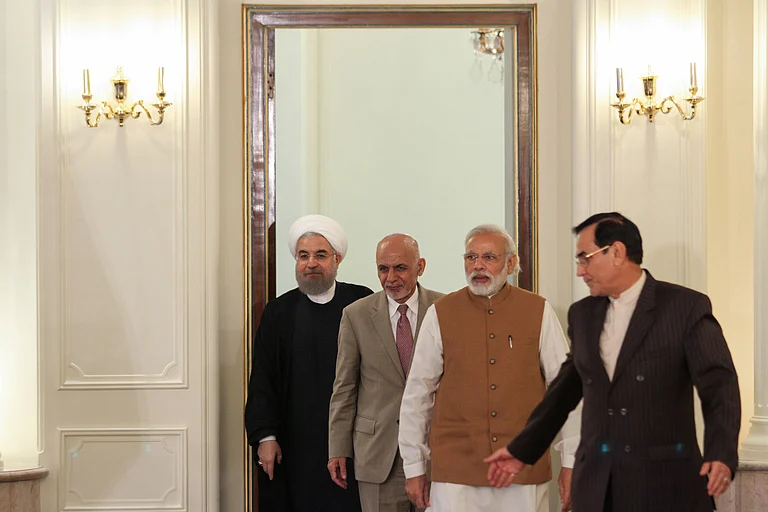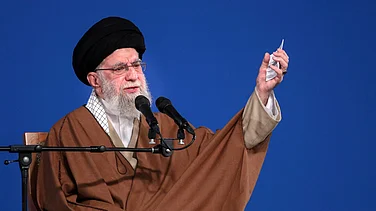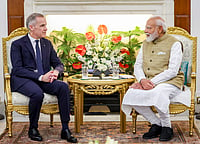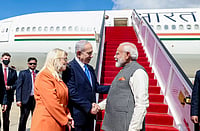There is a renewed buzz over Chabahar since India and Iran signed a ten-year agreement on Monday for operating a major terminal in a port that is of immense strategic and economic significance for New Delhi. Chabahar is located roughly 72 kilometers west of Gwadar port in Pakistan’s Balochistan province. Operations are run by a Chinese company and it is part of the China-Pakistan-Economic Corridor, at the heart of President Xi Jinping’s ambitious Belt and Road Initiative.
India has been operating the Shahid Beheshti port in Chabahar since 2018, but Chabahar has not picked up traffic. It's operating in fits and starts. A long term agreement changes the equation. New Delhi now hopes to start full cargo operations in Chabahar by the end of the month. The new pact will give much needed boost to the project and provide fresh impetus to increase trade, not just with Afghanistan but across the wider Central Asian markets. Chabahar will improve India’s connectivity with the north-south transport corridor, a joint Iran-Russia project and open up large areas for trading and economic activity.
``…the agreement will clear the pathway for bigger investments to be made in the port…Without long-term agreement, it’s difficult to invest in a port,’’ Sarbananda Sonowal, India’s minister for ports and shipping said after the agreement was signed in Tehran. India will bring in $120 million under the agreement, and an addition $250 million in financing, taking overall investment to around $370 million altogether. Foreign minister Subramanyam Jaishankar said, "It will clear the pathway for bigger investments to be made in the port."
Chabahar has been decades in the making, thanks to the crippling sanctions that successive US governments have slapped on Iran. The project was initiated in 2003, when former prime minister Atal Bihari Vajpayee and visiting Iranian president Muhammad Khatami laid down the roadmap for strategic cooperation between Iran and India.
However, it has long been a case of one step forward and two steps back in India-Iran relations, especially Gwadar, thanks to New Delhi’s friendship with the US. So enthusiasm for the long delayed plans have to be tempered with a reality check on the evolving situation in West Asia and the fresh sanctions placed on Iran following its drone and missile attacks on Israel; which came after the bombing of the Iranian mission in Damascus in which two top Iranian generals were killed. Much will depend on how the situation in West Asia evolves and Iran’s testy relations with the US as well as Israel. The headwinds of international politics could yet scuttle the Chabahar project as India continues to balance its growing strategic ties with Washington and its European allies, with Iran’s antipathy to the US.
In 2018, India was granted exemption from US sanctions on Iran for the Chabahar project. Will that still hold? The context then was different as the US troops had not withdrawn from Afghanistan, a democratic government was in place in Kabul, and the port project was an alternative transport arrangement for India to reach Afghanistan. Pakistan does not allow India access to Afghanistan through its territory. India’s interest in Chabahar was aimed at reaching essentials via Chabahar and then onwards by road to Afghanistan. New Delhi has built the 218 kms Delaram road connecting Western Afghanistan to Zaranj on the Iran-Afghanistan border at a cost of $100 million. Indian workers were attacked several times by the Taliban while building the road. Now Taliban realizes the importance of Chabahar and wants it to succeed.
The US State Department did not waste much time in warning India. Vedant Patel, the principal deputy spokesperson, had this to say: ``…..anyone considering business deals with Tehran needs to be aware of the potential risk of sanctions.’’
India is hopeful that the US exception for Chabahar will remain in place, considering its strategic importance and China’s central role in Gwadar. Despite the State Department’s remarks, New Delhi is hoping to work around the problem.








